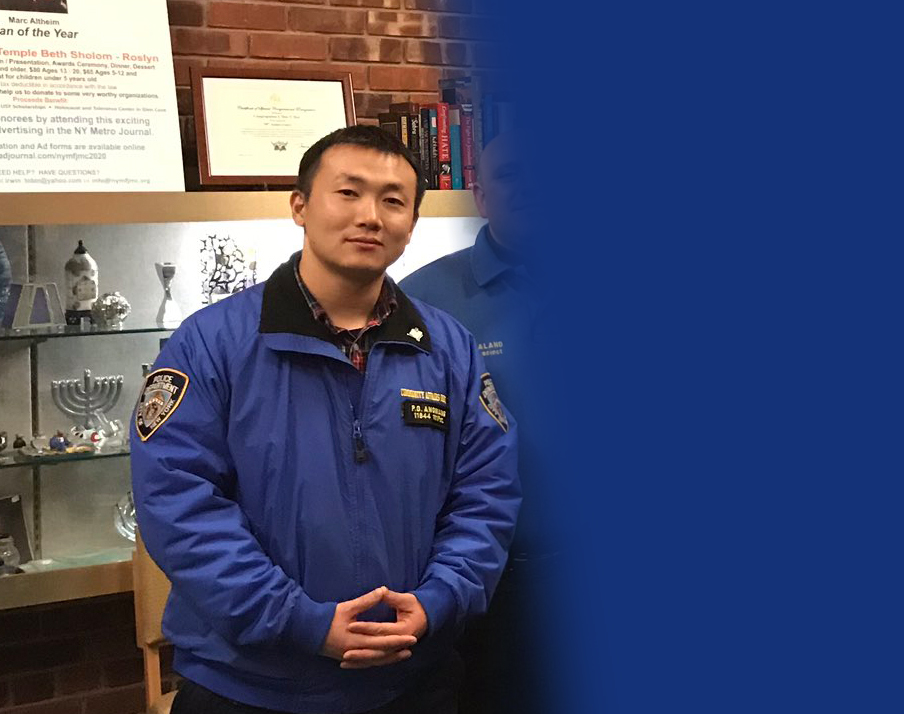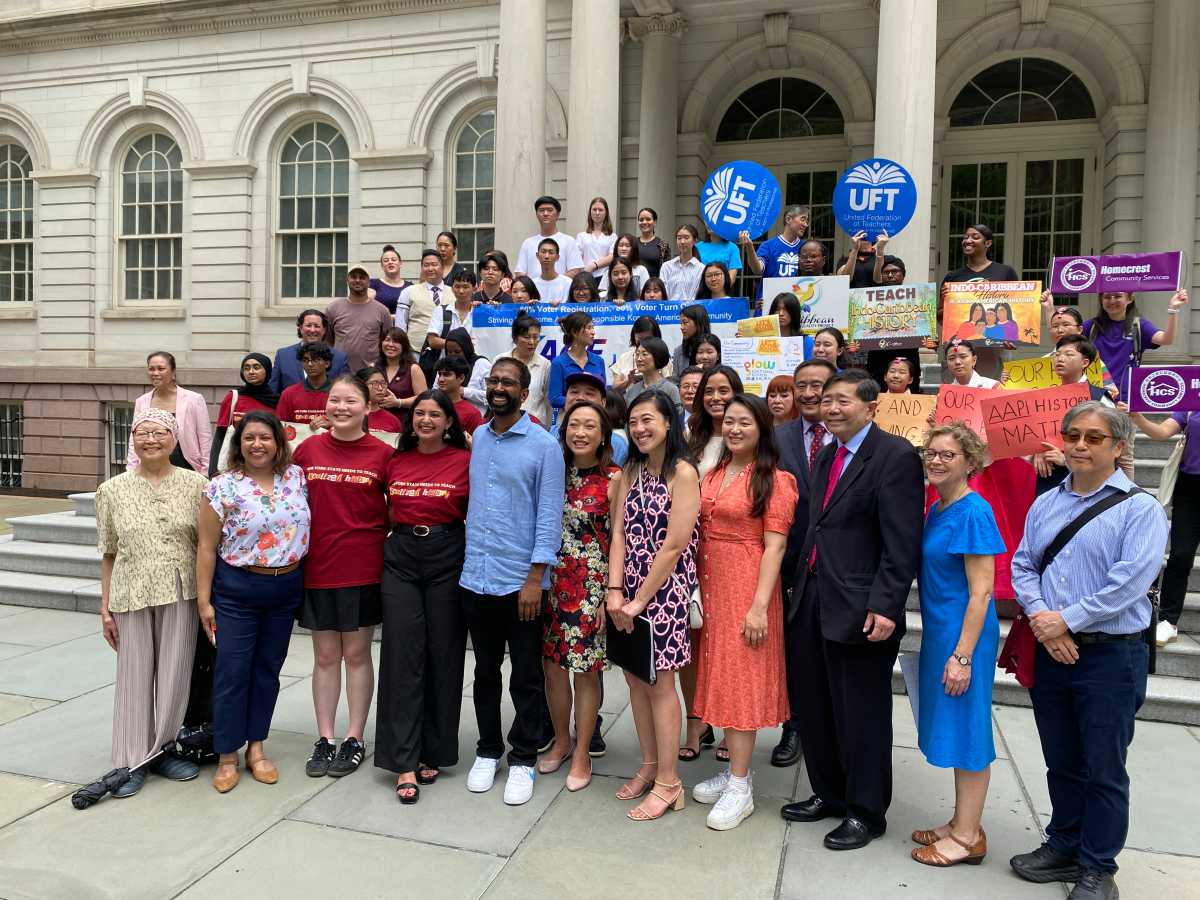A community affairs officer assigned to a Queens police precinct found himself in handcuffs Monday for allegedly doubling as a secret agent for the Chinese government who worked to infiltrate the local Tibetan community, federal prosecutors announced.
By day, Baimadajie Angwang, 33, worked out of the 111th Precinct Community Affairs Unit as a liaison between officers and residents in the northeastern Queens neighborhoods they patrol — and also served as a U.S. Army reserve based in Fort Dix, N.J., where he gained “secret” level security clearance.
But Angwang’s side gig, according to acting U.S. Attorney for the Eastern District of New York Seth DuCharme, was serving as a sleeper agent for China’s communist government. The criminal complaint alleges that Angwang has worked with two members of the Chinese consulate in New York since 2018 to provide information on activities of Tibetans living in the New York City area.
Angwang is now charged with acting as a foreign agent without prior notification of the U.S. attorney general, wire fraud, making false statements and obstructing an official proceeding.
“As alleged in this federal complaint, Baimadajie Angwang violated every oath he took in this country. One to the United States, another to the U.S. Army, and a third to this Police Department,” said Police Commissioner Dermot Shea. “From the earliest stages of this investigation, the NYPD’s Intelligence and Internal Affairs bureaus worked closely with the FBI’s Counterintelligence Division to make sure this individual would be brought to justice.”
Angwang, who resides in Williston Park in Long Island, came to the U.S. on a cultural exchange visa and overstayed a second visa, eventually becoming a naturalized citizen after seeking asylum in the U.S.
In his asylum claim, the officer alleged that he had suffered arrest and torture at the hands of the Chinese government.
In reality, the criminal complaint charged that Angwang allegedly worked with Chinese consulate officials to report on the activities of ethnic Tibetans living in New York, and to recruit Tibetans as possible intelligence sources.
Federal prosecutors said that Angwang had “familial and financial ties” to the communist Chinese government; his father is a retired member of the party and the People’s Liberation Army, while his brother currently serves as an army reservist in China, and his mother is a retired government official.
Through an investigation, federal agents learned of an October 2018 call in which Angwang allegedly informed a Chinese consulate official about the opening of a new Tibetan community center in Queens, and suggested that they visit it together.
“They are the biggest venue for activities right now,” Angwang allegedly told the official in a conversation the U.S. government obtained. “If they are involved with politics, then in the future, more than half of the meetings might take place there.” This statement hinted at an opportunity for the Chinese government to recruit new agents, according to the charges.
Moreover, prosecutors said, Angwang allegedly used his position at the NYPD to provide consulate officials with access to senior NYPD officials at various departmental events.
In a November 2018 phone call with a consulate official, Angwang suggested attending NYPD events “to raise our country’s soft power,” adding that he could serve to feed them with information about the department’s inner workings.
On another call in February 2019, Angwang talked up a U.S. citizen of Tibetan descent who previously ran for public office as someone with “a very good political future,” and could be an ideal candidate to take a tour of China with the consulate officials.
“I think this news would generate very positive effects,” he allegedly said.
In further conversations, prosecutors charged, Angwang allegedly suggested to the officials that they offer 10-year visits to Tibetans in the U.S. to incentivize their recruitment as agents.
Angwang faces up to 55 years behind bars if convicted.
































